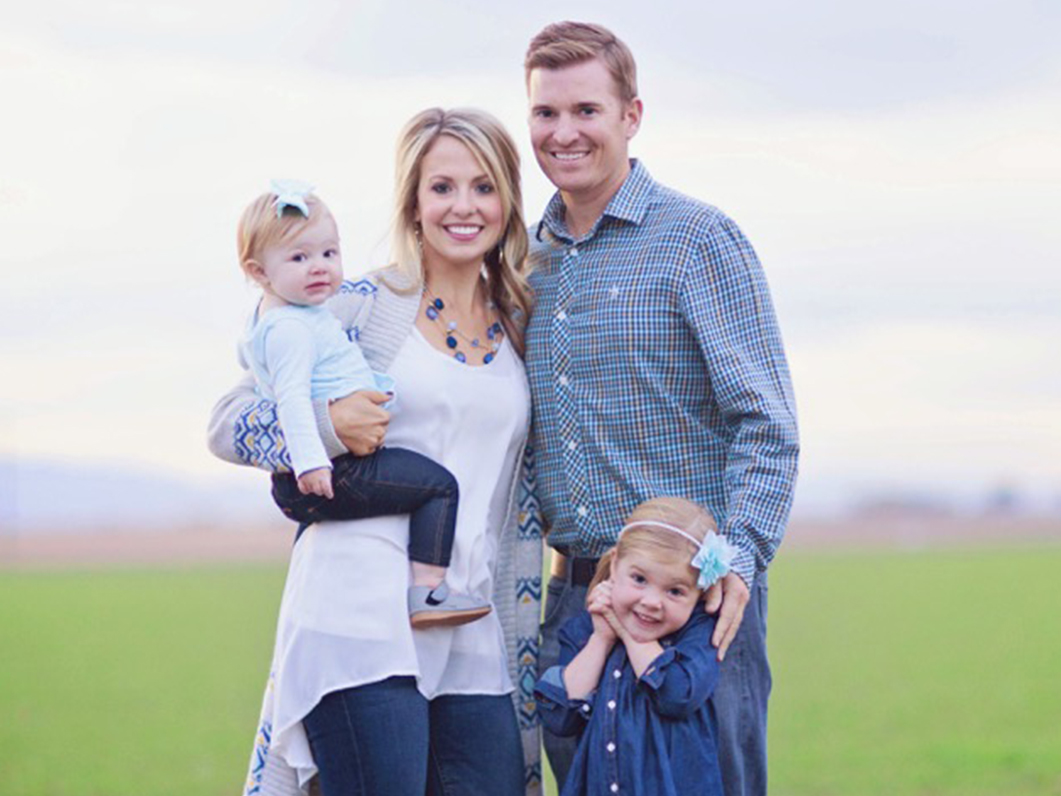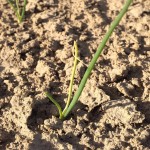When Swedish settler Carl Fagerberg came to the Eastern Slope of Colorado in 1882, he planted not only crops but also family roots on his homestead north of Denver. Now, after nearly a century and a half since Carl’s first hoed row, his legacy lives on at Fagerberg Farms/Fagerberg Produce in Eaton.
Carl’s late son, David, David’s son, Lynn, and now Lynn’s son, Ryan, have all contributed to the farming enterprise. David began the onion production in 1948, and today both Lynn and Ryan are involved in growing/packing/shipping, working the Front Range soil and watching the Front Range weather – full-time jobs in and of themselves – while also staying closely tied to the sales and marketing side.
For Ryan, it’s not only his first job but also his only job. The farm kid graduated from Colorado State University, located in nearby Fort Collins, with a business degree in 2005 and thereafter began his official career at Fagerberg Produce Co.
Now 33 years old, he works in sales during the shipping season, and in the summer, he said, “I tend to be more outside on the farm.”
And at home, Ryan and his wife of 10 years, Kristin, are parents to two daughters, Skyler and Kendall, and a third is due in the fall.
This is the face of the Millennial farm family, a blend of family history and tradition with the fresh approach of the Millennial generation. If family history and tradition are the harmony of Colorado agriculture, constant change and growth of the Millennial demographic are the syncopation.
Through the eyes of a fourth-generation farmer, he keeps close watch on the planting, growing, harvesting, packing/shipping and sales, starting each year with the seed onions that are planted in the Weld County fields in early spring.
“Planting begins in late March, and harvest begins in late July. Our shipping season for Colorado onions is typically Aug. 1 – March 15. We plant both transplants and direct seeded onions,” he said. “The majority are direct seeded. All of our onions are packed in Eaton, and our sales office is located at the same facility.”
He added that while Fagerberg Farms does not grow organics, “We are certified to package organic onions, and we provide organic onions to a number of our retail customers.”
Ryan also views the world through the Millennial lens, noting many advancements and changes in technology and in day-to-day activities within the industry over the last decade.
On the tech side, Fagerberg Farms utilizes mechanical equipment that allows for 2.5 million pounds of onions to be harvested and stored daily. Quality is maintained in storage by computerized climate control technology. And to ensure uniform sizing the packing shed has computerized equipment that sizes, weighs and photographs each onion for product consistency.
“I think it is safe to say that as technology in raising an onion crop continues to improve, farming will become a more precise and efficient practice,” Ryan said.
Supply and demand is a constant, and he said, “More changes I have noticed in the onion industry have been price and availability. These seem to hinge on what kind of weather conditions we are presented with each year.”
What does Ryan Fagerberg believe his generation will contribute to the legacy of the American farmer?
“Millennials are more concerned with the practices by which their food is both grown and packaged,” he said. “While it is encouraging to see the increased interest in the farming industry, more regulations and inspections seems to be the result.”
And it’s up to the industry to adjust to the times and the circumstances, he said. That is the course Fagerberg Farms/Fagerberg Produce Co. takes as it rises to the ongoing and ever-changing challenges.
“Consumers are demanding more responsible farming techniques and higher accountability in the packing shed,” he said. His enthusiasm came through as he concluded, “This has been a positive thing for Fagerberg Produce Company and has allowed many other grower/shippers to affirm themselves as leaders in the industry.”



